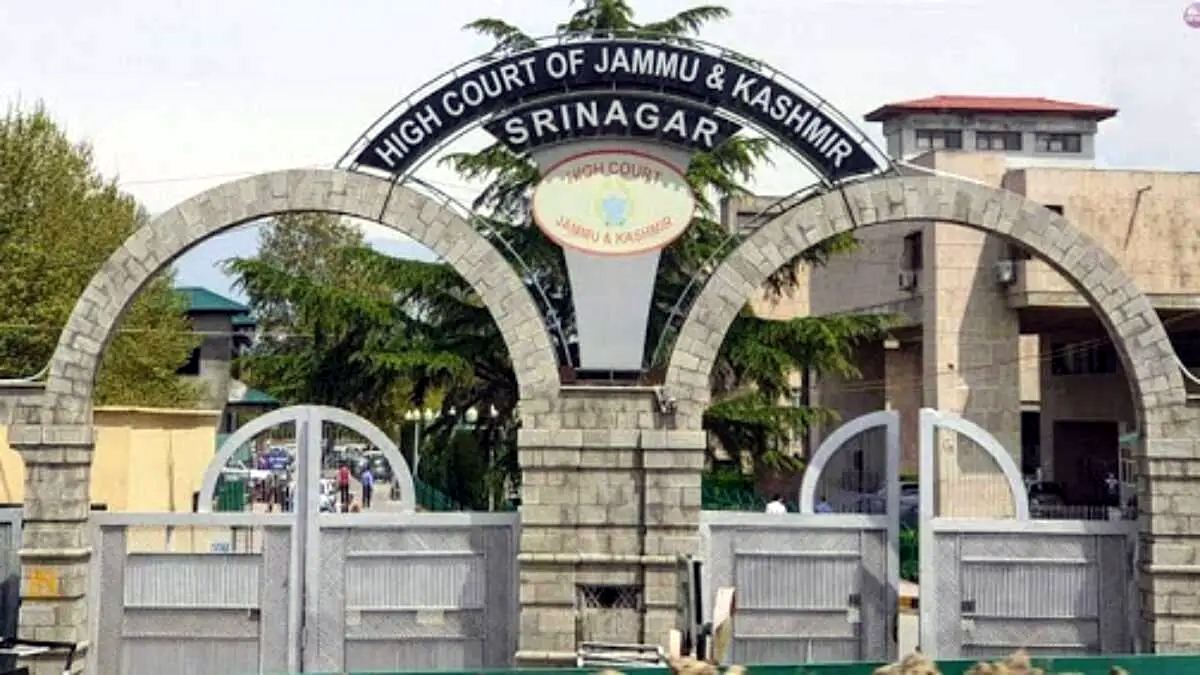Excelsior Correspondent
SRINAGAR, Oct 25: The Division Bench of High Court upheld the writ court judgement whereby it had held the attachment and auction of property under Prevention of Money Laundering (PMLA) Act as reasoned and lucid.
The division bench of Chief Justice Ali Mohammad Magrey and Justice Sanjay Dhar dismissed the appeal filed by Syed Akeel Shah and Syed Adeel Shah hailing from North Kashmir’s Sopore against the judgement of writ court whereby the court had upheld the auction of immovable property of appellants by the Enforcement Directorate under PMLA.
“If at all the appellants apprehend an immediate action against them by the respondent-ED, it is open to them to immediately approach the appellate authority and persuade the said authority to stay the impugned order of attachment. They cannot bypass the remedy of appeal by invoking the writ jurisdiction of this Court simply by laying challenge to the proceedings which are essentially offshoot of the order passed by the Adjudicating Authority, which is appealable under Section 26 of the PMLA”, the DB concluded.
The appellants have been held accused in two FIRs registered by the then Vigilance Organization Kashmir, respectively under Section 5 (2) of the J&K Prevention of Corruption Act, on the allegations as set out in the FIRs. Subsequently, the Enforcement Directorate, Jammu for offence under Prevention of Money Laundering Act and during investigation by ED, a provisional attachment orders were passed, with regard to movable/immovable properties of the all the three persons including bank accounts, and a residential accommodations.
The ED counsel and Deputy Solicitor General of India, appearing for the respondents argued that Section 8(4) of the Act clearly provides that owner or occupier of the attached property can be evicted forthwith after the order of attachment is confirmed by the Adjudicating Authority under Section 8(3) of the Act.
The DB said that after following the procedure prescribed, the Adjudicating Authority may confirm the attachment of the property made under law or retention of property or record seized or frozen under the Act. Once the provisional attachment made under Section 5(1) is confirmed by the Adjudicating Authority, the authorized officer is entitled to forthwith take possession of the attached property in the manner prescribed under the Rules of 2013.
The order of confirmation of attachment, the DB added, passed by the Adjudicating Authority is just like a decree of a civil court which becomes executable the moment it is drawn. Just like execution of a decree of civil court is not to wait the period of limitation for filing an appeal before the appellate court.
“Similarly, an order passed under Section 8(3) of the PMLA is to be acted upon immediately and it cannot await the expiry of period of limitation for filing appeal against the said order. Thus, the respondents were well within their powers to issue the impugned notice, which is in tune with the legal position as discernible from the provisions contained in Sections 8 and 26 of the PMLA read with Rule 5(2) of the Rules of 2013”, DB clarified.
The DB after perusal of the attachment notice and auction notice issued by the ED against the accused persons said, this brings to the fore that while an aggrieved person has a right of appeal against the order of attachment passed by the Adjudicating Authority which the aggrieved person has to avail within 45 days of receipt of order of attachment, the authorized officer or the Director has the jurisdiction to forthwith take possession of the property attached.
“The expression ‘forthwith’ is of great significance, inasmuch as it gives power to the Director or authorized officer to immediately proceed against the person whose property has been attached by virtue of order of Adjudicating Authority.
The jurisdiction to proceed under Section 8(4) of the PMLA court said, would come into play immediately upon passing of the order of attachment by the Adjudicating Authority. There is no scope to interpret the provisions contained in Section 8(4) and Section 26 of the PMLA and Rule 5(2) of the Rules of 2013 to hold that for taking action under Section 8(4) of the PMLA, the authorized officer has to await the expiry of period of limitation i.e., 45 days.


